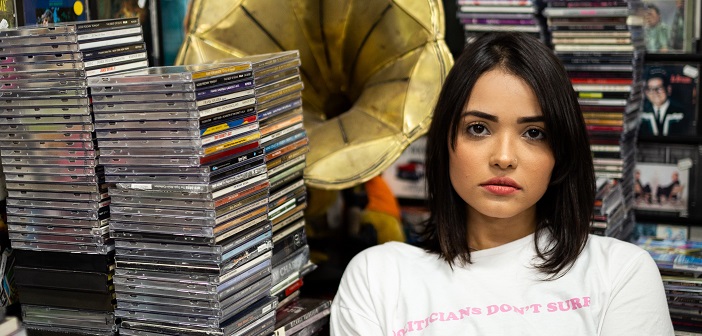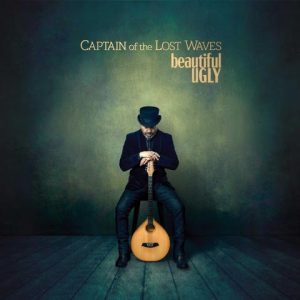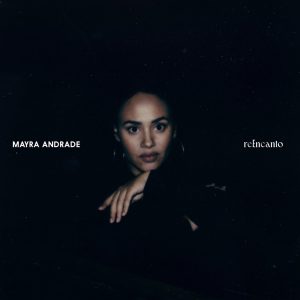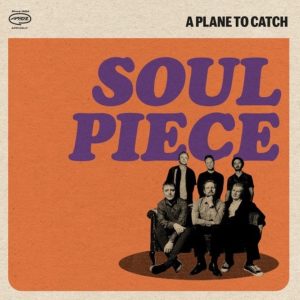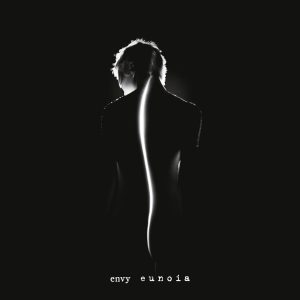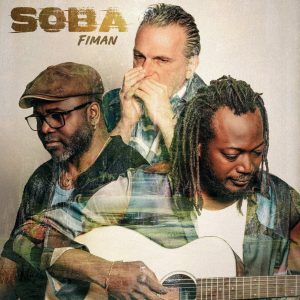Album review overview: Mayra Andrade, Envy and more
Dozens of new albums arrive at Maxazine’s editorial staff every week. There are way too many to listen to them all, let alone review them. It ensures that too many albums are left behind. And that’s a shame. That is why today we post an overview of albums that arrive at the editors in short reviews.
The Captain of the Lost Waves – Beautiful Ugly
The Captain is an open-minded troubadour, drawing inspiration from great philosophers, among others. His music features dreamy verses and beautiful melodies, calm folk, and ambient sounds. About two years ago, a driver in a stolen car was fleeing from the police, causing The Captain and his family (completely through no fault of their own) to be involved in a car accident. A long rehabilitation followed for The Captain. He continued to make music, but it was difficult and slow. Due in part to the strong painkillers and all the emotions that come with an accident and recovery, “Beautiful Ugly” became a reflective and healing album. Knowing this, you may listen differently to the calm, sometimes surreal-sounding tracks. The Captain’s voice blends so beautifully with the music that his vocals become one with the melodies. As a result, the lyrics can sometimes pass by unnoticed, giving the album a soothing effect. If you listen carefully to the lyrics, they might make you reflect. However you choose to listen, if you need calm, this album will likely appeal to you. (Esther Kessel-Tamerus) (8/10) (Melodic Revolution Records)
Mayra Andrade – reEncanto (Live at Union Chapel)
Mayra Andrade, the talented singer from Cape Verde, showcases her vocal skills in this intimate live album recorded at Union Chapel. While comparisons to her compatriot Cesária Évora are inevitable, Andrade creates her atmosphere here. “reEncanto” offers a sparse, instrumental accompaniment that puts Andrade’s voice front and centre. Although she may not match Évora’s deep vocal power, Andrade charms with her unique timbre and expression. This album is not traditional fado but exudes a similar feeling of ‘saudade’ – a melancholic nostalgia characteristic of Portuguese-speaking music. The live recording captures the essence of an intimate musical evening, perfect for a romantic dinner backdrop. Andrade’s international background and experience in the Parisian world music scene subtly shine through in her performance. For fans of refined, atmospheric world music, “Encanto” offers a captivating listening experience that invites multiple plays. (Jan Vranken) (7/10) (TriangleSongs)
A Plane to Catch – Soul Piece
The album “Soul Piece” is an infectious blend of West African musical traditions and Western funk and soul, born from the creative minds of Danish jazz musicians during the pandemic. The opener, “Bamako Convention Centre”, immediately sets the tone with a toe-tapping rhythm and an organ that evokes nostalgic memories of the 1970s. While the album is full of infectious grooves, warm production, and playful improvisations, it suffers from a somewhat too polite approach. The eight compositions expertly navigate familiar harmonic clichés from 70s soul music but sometimes lack the raw energy that defines this style. The self-produced nature of the album is both a blessing and a curse. While it creates an intimate atmosphere, as if you’re standing in a dark club with an electric jam band, it misses the rough edges that can make this music exciting. Everything sounds just a bit too polished, at times resembling a tropical brass band. The trumpet solo on “Corny Big” showcases what’s possible when the musicians let loose. It’s a shame this sense of freedom doesn’t appear more often on the album. For their next record, the band would do well to enlist an external producer, someone who can challenge them to colour outside the lines and let the raw diamonds in their sound shine through. Nonetheless, “Soul Piece” is an enjoyable album that takes listeners on a musical journey full of funk, soul, and African influences. It’s a great record to dance to, but with a bit more daring and a rawer production, it could have been a true masterpiece. (Anton Dupont) (7/10) (April Records)
Envy – Eunoia
After more than thirty years in the music industry, Japanese post-hardcore band Envy returns with their ninth studio album, “Eunoia.” This album proves that the band, despite their long career, is still able to innovate and surprise. If we had to describe the entire album in one word, ‘intense’ would be the best description. The opener “Piecemeal” serves as a short introduction before the band dives into a broad, hard, and captivating sound. In “The Night and the Void”, we hear a different side of Envy. Here, the band incorporates traditional instruments into their post-hardcore sound, resulting in a calmer musical landscape. This track shows that Envy is not afraid to experiment and broaden its sound. After a major lineup change in 2018, which threatened the band’s existence, Envy has managed to regroup. “Eunoia” is the second album with the new lineup and shows immense growth. Founder and songwriter Nobukata Kawai explains: “The concept behind the album was to honestly face our own helplessness. We sought a bit of hope and captured the emotions from daily life in a diary-like way.” For fans of the genre, “Eunoia” is a must-listen. The album showcases a band that sounds better than ever in their thirty-year career. It’s a powerful and intense record that captures the essence of Envy’s sound while showing that they are still able to grow and evolve. The album radiates a strength and appeal comparable to the natural gravity and wonder of a total solar eclipse. (Jan Vranken) (8/10) (Pelagic Records)
Soba – Fiman
The trio Soba, consisting of Burkinabe guitarist and singer Moussa Koita, French harmonica player Vincent Bucher, and Congolese drummer Emile Biayenda, presents their debut album. This project, which saw the light of day in 2019, offers a captivating blend of West African sounds and Mississippi blues. Koita, from a griot family in Bobo-Dioulasso, brings his rich cultural heritage through Mandinka singing and guitar playing. Bucher, one of France’s most innovative harmonica players, adds an unmistakable blues touch. Biayenda’s percussion forms the perfect bridge between these two worlds. The album opens strongly with the title track, immediately setting the tone for what follows: a natural fusion of styles reminiscent of earlier trans-Atlantic collaborations, such as the groundbreaking “The Source” by Taj Mahal and Ali Farka Touré from 1991. Throughout the eleven tracks, we hear various influences. “Deme” and “Horonke” lean toward proto-reggae, while “Tounga”, “Politiki Magni”, and “Miri” lean more towards folky boogie. “Faso Den” brings a typical Malian beat. Bucher’s harmonica playing adapts effortlessly to these diverse rhythms, while Koita’s guitar and vocals provide the harmonic foundation. On tracks like “I Kanata”, “Fantaya”, “Wariko”, and “Den Folo”, echoes of greats such as Salif Keita and Mory Kante can be heard. While the concept of a fusion between West African music and American blues is not new, Soba gives it its twist. The quality of the performance and the sincere interpretation elevate this album above the average. The result is a warm and generous album that takes the listener on a musical journey from the banks of the Mississippi to the savannas of West Africa. For lovers of world music and blues, this is a recommendation. (Jan Vranken) (7/10) (Editer a Paris)
![]()

